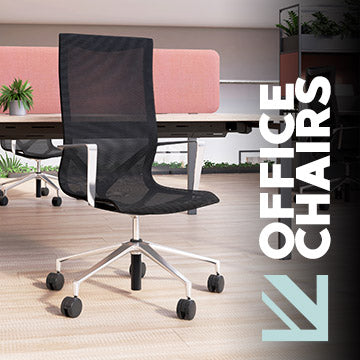
5 Tips for Helping Manage & Improve Your Mental Wellbeing in the Office

Work takes up so much of our daily lives. If we’re not actually there, we’re commuting. Or we’re planning or worrying about what the working week will bring. So, if you’re struggling mentally or emotionally at work, it can badly impact the rest of your life. You can feel stressed or anxious, or even depressed. Finding ways to combat that is vital to your own wellbeing. So, what can you do to better manage your mental health at work?
5 Tips for Managing & Improving Your Mental Wellbeing in the Office
Work on your workspace
Where you work can have a big influence on how you perceive work. So, changing and personalising your workspace can be really beneficial. So, think about comfort levels – is your office chair supportive? Do you feel comfortable when you’re working? Do you have anywhere to relax or take five minutes away from your desk? Having a bean bag seat to just flop into can give you both physical and mental relief. And what does your office space look like? Does it reflect you and your needs, or is it grey and impersonal? Adding artwork and photographs, or items of interest can really help. And adding a pot plant of two has been shown to boost mental health.
Try the Pomodoro approach
The Pomodoro is a working practice that enables you to break up your day between periods of intense focus and relaxation. Most people who use this technique will work in 25 minute bursts, then take five minutes to relax – whether through meditation, breathing exercises, mini-yoga sessions, or simply to just move away from their screen. This enhances focus and productivity while boosting mental wellbeing.
Don’t just sit
Sitting too long is widely known to be bad for the physical health. But it can also impact your mental wellbeing. Reduced physical activity is linked to depression. Poor circulation and reduced oxygen can lead to brain fog, anxiety, and irritability. Poor posture doesn’t just create aches and strains, but can lead to depression. So, finding ways to move more in the office can really help. You might opt for a sit-stand desk. Or you might just benefit from making sure that you take a five-minute walk once an hour, just to keep moving. Both can really help you feel better.
Create a good work-life balance
Now, this one can be difficult to do. Even the phrase can be triggering because we all know that we should have a healthy work-life balance. But it’s easier said than done. However, allowing yourself to shut off when you leave the office – to schedule you time, to switch off your phone when you get home, or at least ignore your emails – is really important.
Eat well
OK, so we all know the appeal of junk food. Especially when you’re feeling down. But eating the right foods at the right times can change the way you feel. Skipping meals leads to low blood sugar levels, which can make you feel tired and irritable. And snack foods with a high sodium content can deplete your serotonin levels, making you feel unhappy. While trans fats, also found in most junk foods, can cause depression. Eating healthier foods – fruit, veg, the good fats, protein – and staying hydrated, will help you to feel better.
Everyone feels down at work from time to time. It’s easy to accept that as the norm. But it shouldn’t be. If you’re struggling with mental health at work – or at home – it’s a really good idea to do something about it. These are a few things that you can do for yourself. But if things are tough, it’s also worth using the resources provided by your employer. Or contacting your GP or a mental health support group. Don’t just accept that this is how things are meant to be.
If you’re looking for ways to make your office more comfortable, visit UK Office Furniture.




















